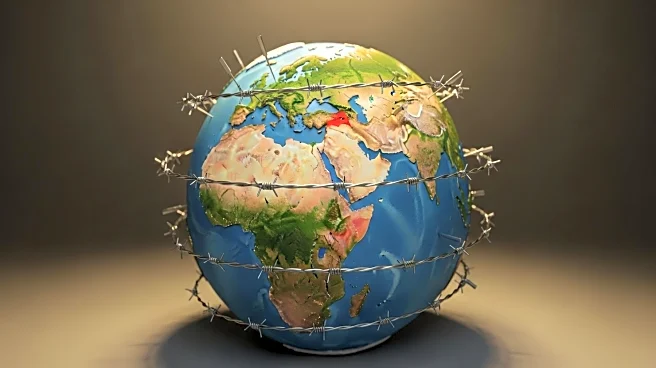What is the story about?
What's Happening?
The United States has revoked visas for Palestinian President Mahmoud Abbas and 80 other officials from the Palestinian Authority (PA). This decision has been criticized by Abbas, who claims it contradicts international law. The revocation comes amid ongoing tensions between the US and Palestinian leadership, with Abbas addressing the issue during his speech at the United Nations General Assembly in New York. The US State Department has not provided specific reasons for the visa denials, but the move is seen as part of broader diplomatic challenges between the two entities.
Why It's Important?
The revocation of visas for Palestinian officials by the US could have significant diplomatic repercussions. It may further strain relations between the US and the Palestinian Authority, impacting peace negotiations and international diplomacy efforts in the Middle East. The decision could also affect the ability of Palestinian leaders to engage in international forums and discussions, potentially isolating them from global diplomatic processes. This action might influence US foreign policy in the region and alter the dynamics of US-Palestinian relations.
What's Next?
The Palestinian Authority may seek to challenge the US decision through diplomatic channels or international legal avenues. There could be increased lobbying efforts to reverse the visa revocations, and Abbas might engage with other international leaders to garner support. The US may face pressure from other countries and international organizations to reconsider its stance, potentially leading to negotiations or policy adjustments. The situation could also prompt discussions within the US government regarding its approach to Palestinian relations.
Beyond the Headlines
The visa revocation highlights broader issues of international law and diplomatic rights. It raises questions about the legal frameworks governing visa issuance and the rights of foreign officials to access international platforms. The move could set a precedent for how countries handle diplomatic disagreements and the use of visa policies as a tool in international relations. It also underscores the complexities of US foreign policy in the Middle East and the challenges of balancing national interests with international diplomatic norms.


















